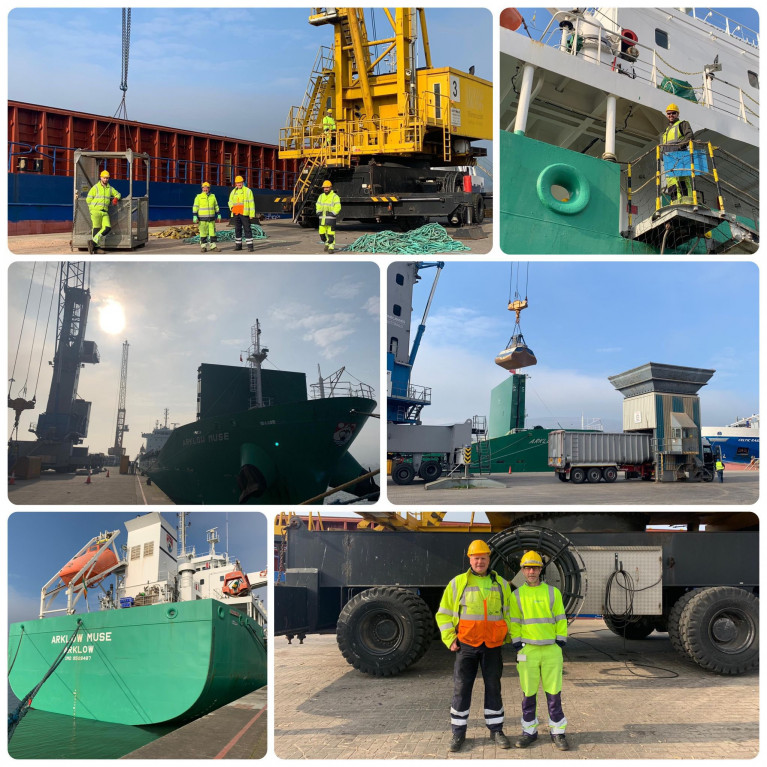Displaying items by tag: Record Year
Tonnage Up 12.6% at Warrenpoint Port Reflects Record Year
Details of Warrenpoint Port's performance for the year ending 31st December 2021 have been released by the Co. Down port.
In a year which brought exceptional challenges, not least in relation to Covid-19 and Brexit, the Port continued to experience unprecedented demand. In 2021 overall tonnage was up 12.6% compared to 2020, with vessel calls up more than 14% and containers up more than 16%.
This has come on the back of 2020 being an extraordinary year, with Covid driving a 20% reduction in volume compared to 2019 in the first half of the year. As restrictions eased, there was a significant, concerted effort in the second half of the year, to reduce this deficit to (-4.2%) on 2019 volume.
Warrenpoint Port now handles circa 12% of Northern Ireland’s port activity, with 51% export and 49% import in 2021. This is a shift for the Port over last two years as historically it would have been a net importer.
- Overall tonnage up 12.6% YoY
- Vessel calls up more than 14%
- Containers up more than 16%.
David Holmes, CEO Warrenpoint Port said, “2021 was another extremely challenging year. Our team were tested to the limits in terms of Covid-19 and in delivering to meet demand throughout the restrictions. We would like to thank our team for all their efforts.
“We recorded a tremendous year with Warrenpoint Port really delivering as an economic driver for the region and offering resilience in the regional infrastructure network outside of Belfast. The Port has put more than £10m GVA back into the local economy in the last 12 months. With a recruitment drive in 2021 the fulltime team has increased to more than 70 and indirectly generates more than 400 additional jobs through Port activities.”
David Holmes continued, “All commodities and formats showed strong favourable growth while support from Department of Infrastructure in 2021 allowed the Port to invest in Covid safety measures and equipment. This greatly benefited the productivity capacity at the site during the pandemic.”
In 2021, the Port continued its investment in and outreach to the local community. It hosted a Big Spring Litter Pick, supported local initiatives including a water safety campaign for young people and a fundraising activity for local walking group, the Hiking Hens.
The Port hosted its second annual Community Christmas Fund, raising more than £22,000 which has been distributed to 43 different local organisations. This brings the total raised over the last two years to more than £34,000. The Port continues to drive its ‘open door’ policy with quarterly community ezines called ‘On Board’ and quarterly meetings with locally elected representatives.





























































